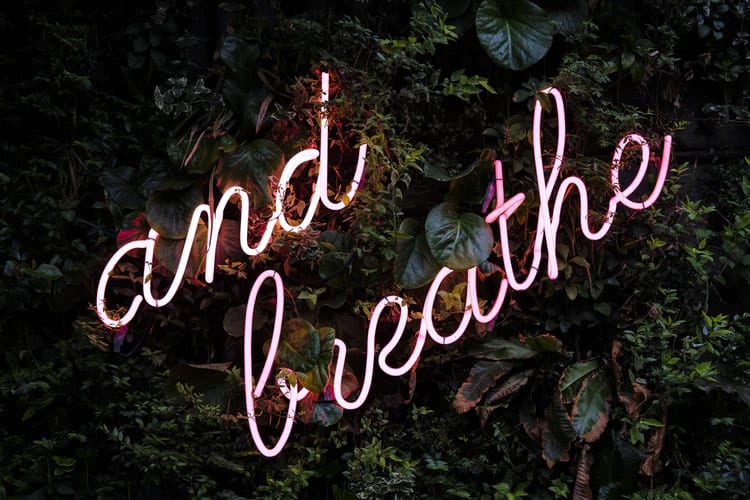During a typical week, we experience a lot of stress and anxiety, whether it comes from an intense work environment, social pressures, or any similar source. These feelings can stick with us for quite some time, and slowly jeopardize our ability to fall asleep and stay asleep. It’s a sadly normalized aspect of adult life, and many of us are looking for ways to relieve all that negativity and embrace a positive, mindful mental state.
In this article, we will present several methods that you can implement into your daily routine to improve your odds of getting enough healthy and uninterrupted sleep. If you’ve ever wanted to “switch off” your brain at night, these should do the trick and then some. Let’s get right into it, shall we?
The Concept of Mindfulness
Mindfulness meditation started off as a method of training awareness. It’s all too easy to get caught up in past events, mentally retracing our steps through the previous day, or to chase after worries and fears relating to tomorrow. But such thoughts can burden our mind and weigh us down when we should be soaring towards a blissful dream state, and so experts around the world are teaching people how to simply “let go” of these unwanted thoughts.
The idea is to focus on things in the present. In most cases, the object of our concentration will be something like breathing, or movement, or stimuli in our surroundings. By focusing on these things intently, we can shut out all other thoughts and worries, and enter a deeply relaxed state, perfect for falling asleep. People of all ages have been able to use mindfulness exercises to maintain a steady sleeping schedule, which helps their circadian rhythm regulate various processes in their body (such as the production of sleep-related hormones like melatonin and cortisol), vastly improving their overall health. Here’s how you can do that, too:
Source: Unsplash
Simple Mindfulness Exercises to Try Right Now
Keep in mind that everyone is different, and what works for a friend of yours may not work for you, and vice-versa. The goal is to find an exercise or two that fit you specifically, and implement them into your daily routine, typically right before bedtime. Let’s look at the exercises together:
Mindful Breathing
There are two main types of mindful breathing exercises – seated and lying down. We will go over both of them here.
Seated Mindful Breathing: The seated method involves making yourself as comfortable as possible on a meditation cushion, a comfortable chair, or simply on the edge of your bed. Close your eyes, and let your body assume a natural, pleasant position. Pay close attention to your breathing patterns; feel every breath slowly flow in and fill your body with positive energy. Feel that same breath leave your nose and mouth, carrying all your worries away. If a thought comes to visit, let it pass into nothingness. As much as possible, keep your attention on your breathing. Observe how your chest and stomach rise and drop in tune with the breathing. Eventually, your heart rate will slow down and coupled with your calmed mind, will help you relax enough to fall asleep.
Mindful Breathing While Lying Down: Perhaps you prefer to lie down in your bed while performing these exercises. In that case, make yourself as comfy as you can and enjoy all the space your bed gives you. Feel the temperature of the room with your hands and feet, and start slowly breathing in and out, focusing on your belly and chest as they rise and fall. Picture this breathing as a wind, soaring through the valley of your mind, blowing the worries away with all the grace of a refreshing summer breeze. As other thoughts attempt to distract you, let them drift away with that wind, and refocus on your breath. You will happily fall asleep without even noticing it.
Source: Unsplash
Switching Off
When you get comfortable in bed, imagine the lights in a large building progressively turning off, like a stream of dominoes falling. Now try to achieve the same thing with your body. Start visualizing your toes slowly turning off, as if they were going to bed for the night. Now work that feeling through the entire foot, and slowly up your shins and thighs. Feel your muscles relax and doze off slowly. Do the same with the other leg, and then start visualizing the same thing for your arms, starting from your fingers. As your body slowly converts into a sleeping state, your mind will quickly follow, and you will wake up many hours later, satisfied and energized for the coming day.
Final Advice
Try to pair these meditative exercises with a healthy and positive lifestyle. The healthier you are, the easier it becomes to fall asleep, and the more impactful mindfulness exercises may become. The positive effects of these methods extend way past your sleeping habits, and you may find yourself more resistant to stress and anxiety during the day, as you calmly sort out all your tasks and obligations. Once you get home, being mindful can help you appreciate all that you have earned and accomplished, leaving you satisfied during your free time, and ready to have fun. Good luck on your personal journey!
Author Bio: Selena Thomas is a content writer who loves sharing tips on healthy lifestyles. A writer by day and a reader by night, she’s fond of writing articles that can help people in improving both physical and mental health. Also, she loves traveling and inspiring people on her blogs.
Image Source: Unsplash
The opinions and views expressed in this guest blog do not necessarily reflect those of www.rtor.org or its sponsor, Laurel House, Inc. The author and www.rtor.org have no affiliations with any products or services mentioned in this article or linked to herein.








I love this article and all those tips for mindfulness that necessary to know for everyone. Keep on writing such a wonderfully informative post.